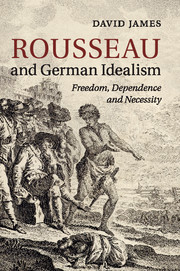German Idealism and the Concept of Punishment
Against the background of early modernism - a period that justified punishment by general deterrence - Kant is usually thought to represent a radical turn towards retributivism. For Kant, and later for Fichte and Hegel, a just punishment respects the humanity inherent in the criminal, and serves no external ends - it is instituted only because the criminal deserves it. In this original study, Jean-Christophe Merle uses close analysis of texts to show that these philosophers did not in fact hold a retributivist position, or even a mixed position; instead he traces in their work the gradual emergence of views in favour of deterrence and resocialisation. He also examines Nietzsche's view that morality rests on the rejection of retribution. His final chapter offers a challenge to the retributivist position, and a defence of resocialisation, in the context of current legal theory and practice concerning the punishment of crimes against humanity.
- Challenges the dominant view of German idealist thought on punishment
- Provides a compelling argument in favour of the deterrence and resocialisation view
- Incorporates current legal theory and practice concerning the punishment of crimes against humanity
Reviews & endorsements
"… informed and sophisticated … thoughtful and … compelling … important work in the history of philosophy …"
British Journal for the History of Philosophy
Product details
June 2010Adobe eBook Reader
9780511763441
0 pages
0kg
This ISBN is for an eBook version which is distributed on our behalf by a third party.
Table of Contents
- Preface
- List of abbreviations
- Introduction
- Part I. Desert as the Sole Justification for Punishment:
- 1. The two Kantian concepts of right
- 2. Kant's legal justification of punishment
- 3. Kant's moral justification of punishment
- Part II. Punishment as a Means of Rehabilitation:
- 4. Fichte's 'expiation contract'
- 5. Hegel's negation of crime
- Part III. Retributivist Inhumanity:
- 6. Nietzsche and punishment without remorse
- 7. Why are crimes against humanity punished at all?
- Conclusion
- Bibliography
- Index.






